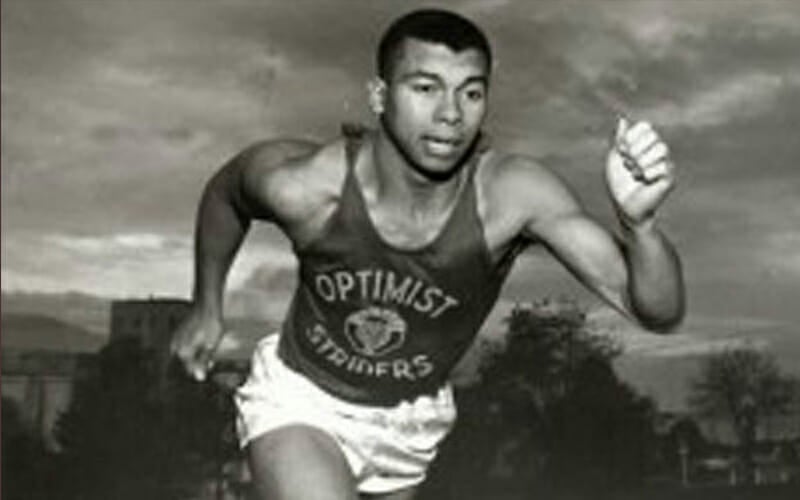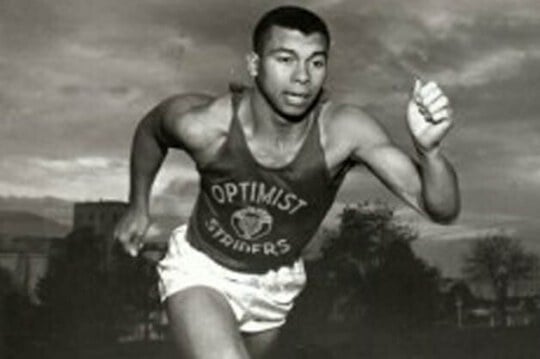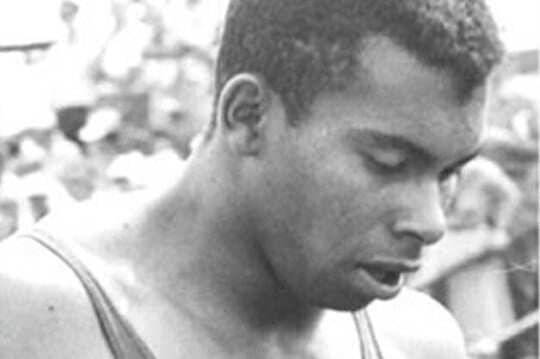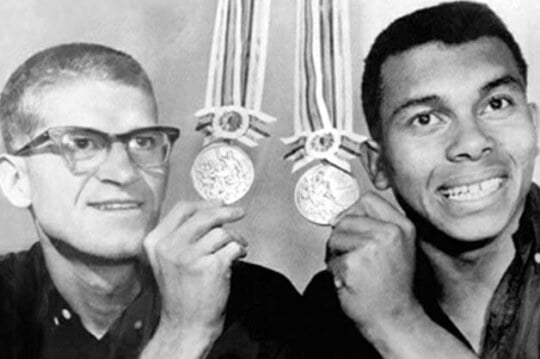Born in Prince Albert, Saskatchewan, Jerome moved with his family to Vancouver at age 12. A natural athlete, he excelled at hockey, baseball, and football, but was an especially gifted runner. His tremendous speed and agility became fully evident in high school, when, at age 18, he broke the Canadian record held for 31 years by Percy Williams in the 220-yard sprint. Jerome won a track scholarship to the University of Oregon, where he set his first world record by running the 100-yard dash in 9.2 seconds.
After completing his master’s degree in physical education, Jerome returned to Vancouver, joining the Canadian Olympic team shortly after. The 1960 Olympic Summer Games in Rome should have been a triumph for Jerome. Instead, they marked the onset of the injuries that would plague his career. During the qualifying heats for the 100-yard dash, a pulled muscle forced Jerome to the sidelines. Two years later, he was back and ready for victory at the 1962 Commonwealth Games. This time, a torn thigh muscle put him out of the running for a year.
Experts predicted that Jerome would never compete again. But true to form, he proved all naysayers wrong by winning a bronze medal in the 100-metre at the 1964 Olympics in Tokyo. That same year, Jerome shattered two more world records, first as part of the University of Oregon relay team, then completing the indoor 60-yard dash in six seconds even.
A fourth world record followed in 1966, when Jerome finished the 100-yard dash in 9.1 seconds, shaving a tenth of a second off his previous record. That same year, he finally struck gold at the Commonwealth Games, an achievement he repeated at the 1967 PanAm Games.
After retiring from competition, Jerome joined Sport Canada and travelled the country to help aspiring athletes. In 1971, he was awarded the Order of Canada.






